AITA for making an uncomfortable joke when my friend told me her dinner table was full with family?
For two decades, she has walked a path shadowed by loss, watching the pillars of her family fade away until only her siblings and brother-in-law remain. The silence of empty chairs at her mother’s funeral echoes the absence of a once vibrant family, leaving her to navigate a world where memories are all that bind her to a past now gone.
Contrasted starkly against her friend’s lively, ever-present clan, where laughter and gatherings are a constant, she feels the sting of what’s missing—a big, bustling family she longs for but never had. In moments meant to celebrate togetherness, the weight of her solitude presses in, turning simple family traditions into quiet reminders of love lost and the fragile hope that still flickers in their small circle.
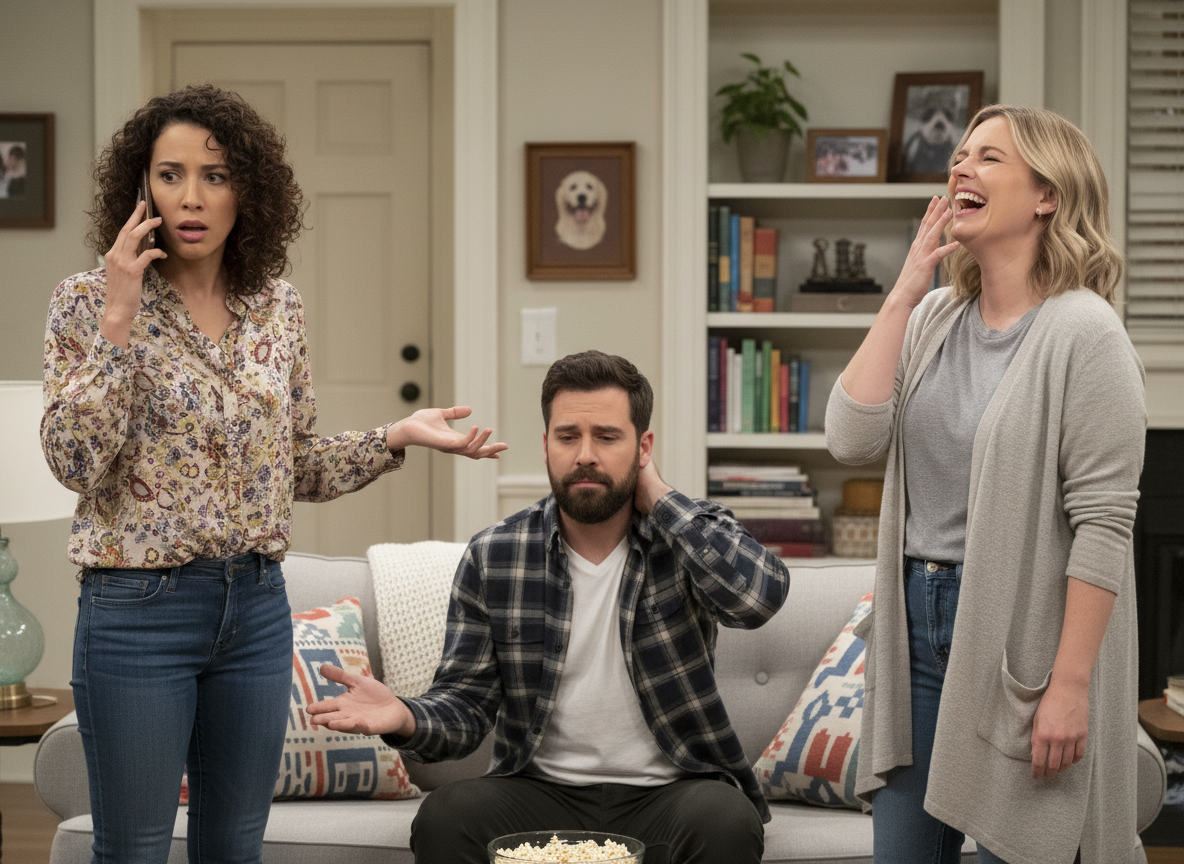
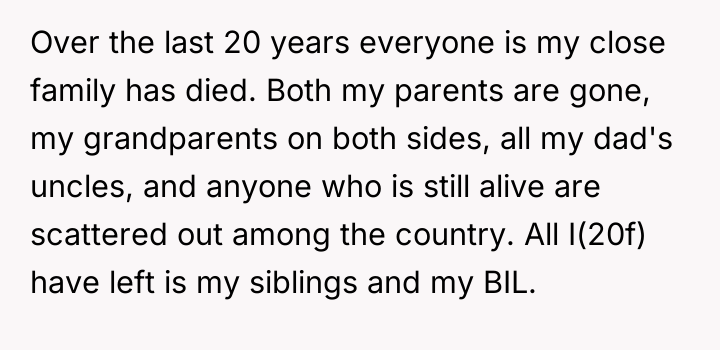
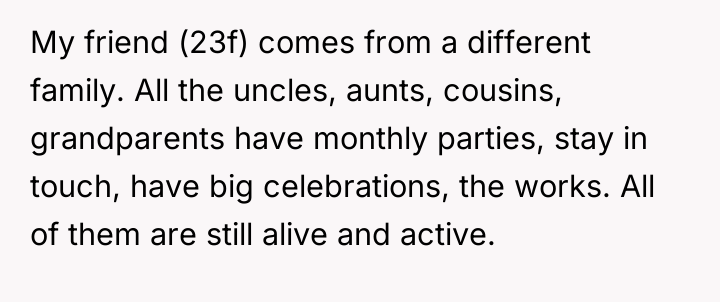
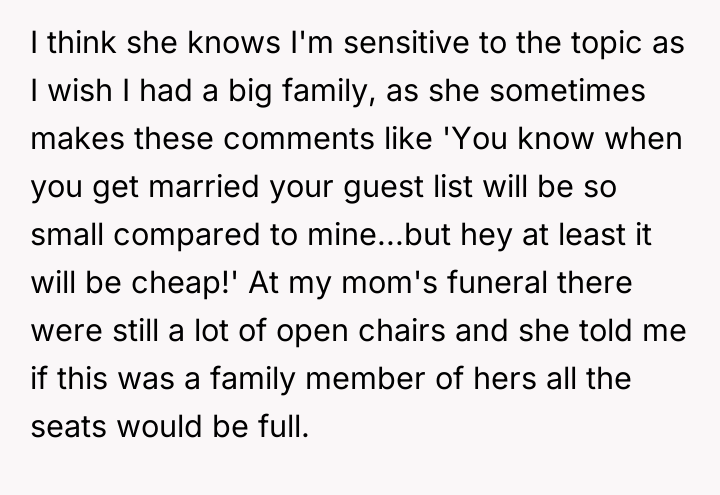

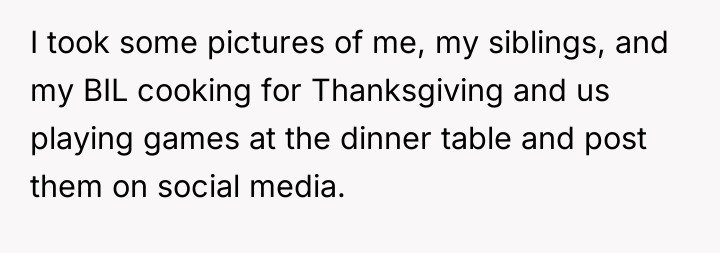
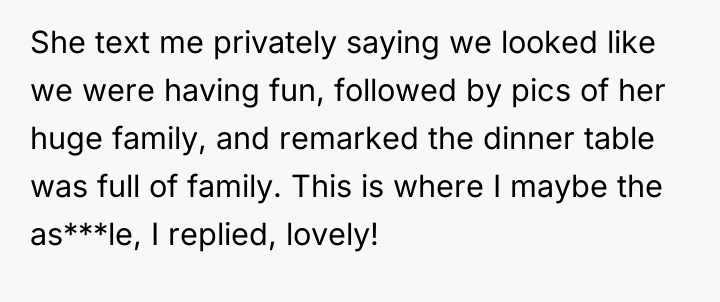
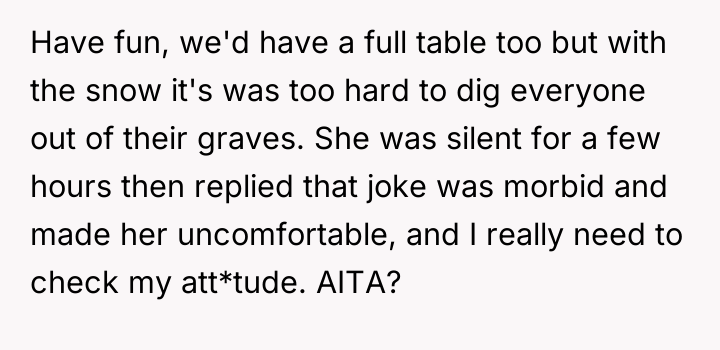
Subscribe to Our Newsletter
As renowned psychologist Dr. Harriet Lerner explains, “The healthiest way to deal with a difficult person is to change how you react to them.” In this situation, the dynamic is heavily colored by unresolved grief and a significant disparity in lived experience. The friend, operating from a place of abundance regarding family ties, seems unable or unwilling to recognize the profound emotional wounds her casual comparisons inflict on the OP, who is grieving continuous loss. The OP’s initial actions—posting about their smaller gathering—were likely an attempt to share joy within their existing support structure (siblings and BIL). The friend's subsequent private message, juxtaposing the OP's photos with her own large family, was a clear, albeit possibly unintentional, act of invalidation. The OP’s reaction—the morbid joke—was an extreme and destructive expression of pent-up anger and hurt, designed to shock the friend into recognizing the gravity of the OP's reality. While understandable as a reaction to repeated boundary violations, this communication strategy escalated the conflict significantly. While the friend was insensitive and repeatedly failed to practice empathy, the OP’s retort was inappropriate because it used the deceased family members as a weapon. A more constructive approach would have been direct, clear communication following the friend’s initial comments, such as, “Your comments about family size are painful for me because of my losses; I need you to stop making those comparisons.” Moving forward, the OP needs to either establish firm emotional boundaries with this friend or recognize that the friend's inability to handle sensitive topics might necessitate creating emotional distance.
REDDIT USERS WERE STUNNED – YOU WON’T BELIEVE SOME OF THESE REACTIONS.:
The crowd poured into the comments, bringing a blend of heated opinions, solid advice, and a few reality checks along the way.
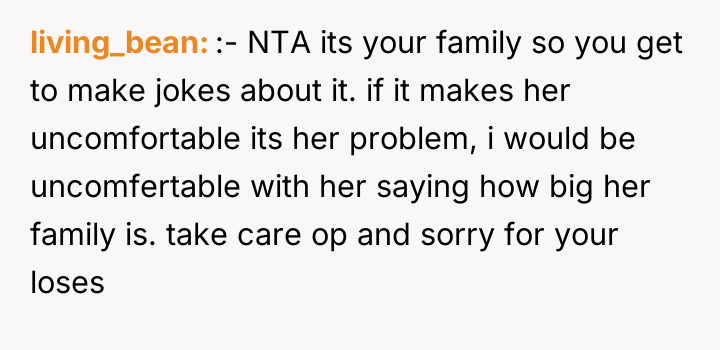
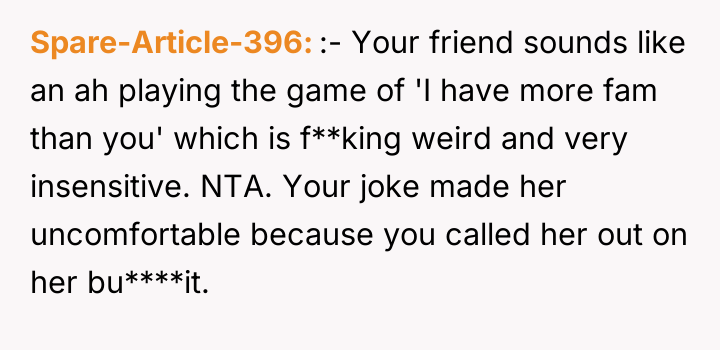
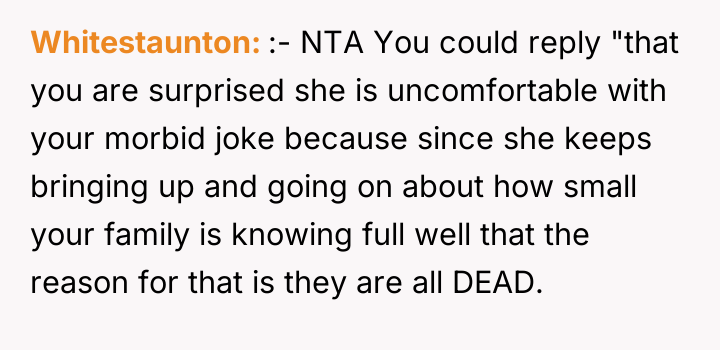
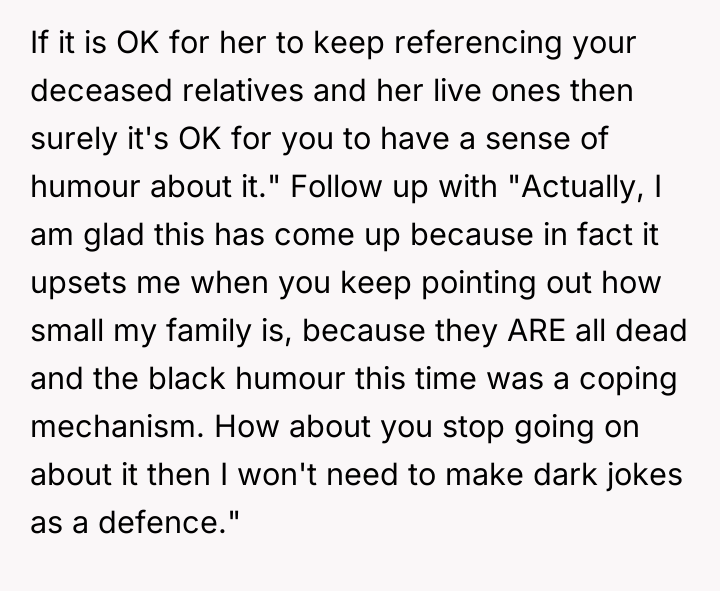
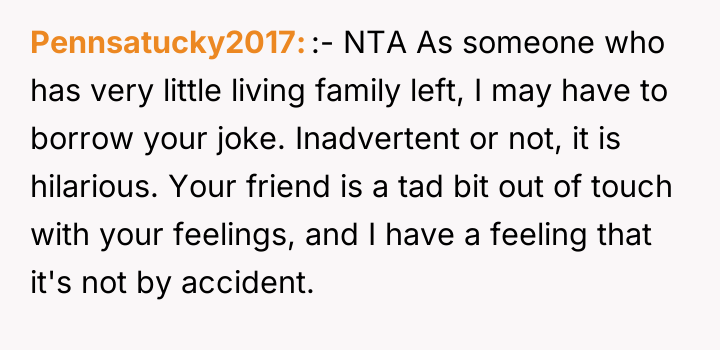
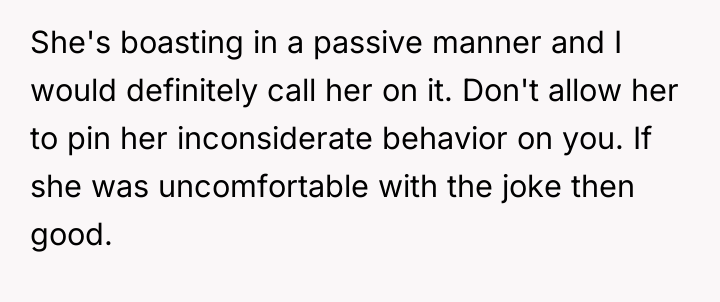
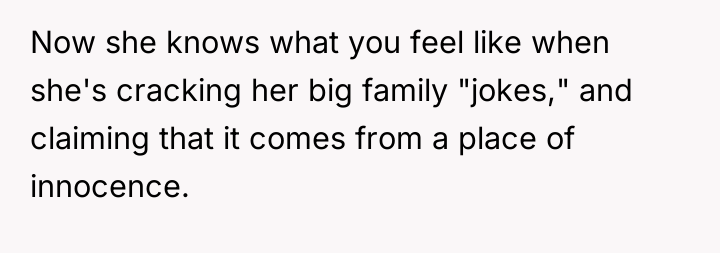
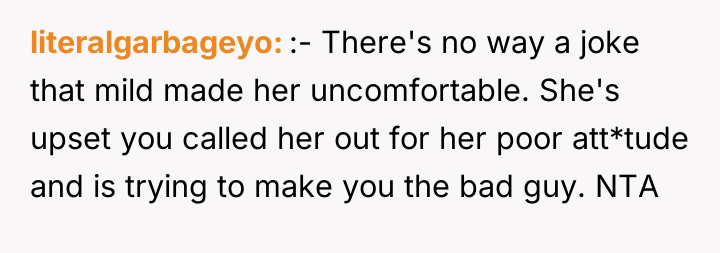
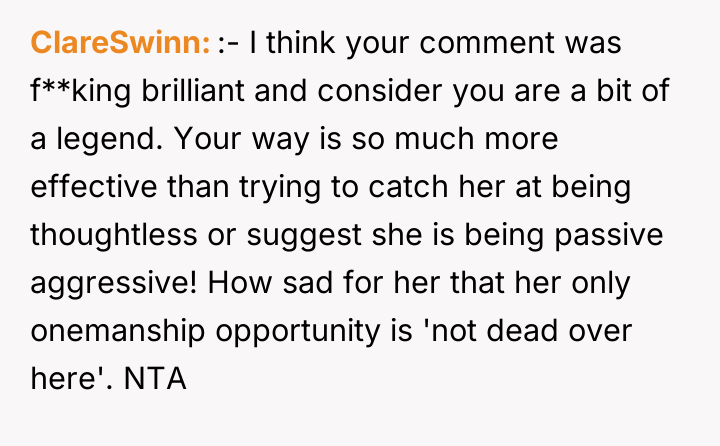
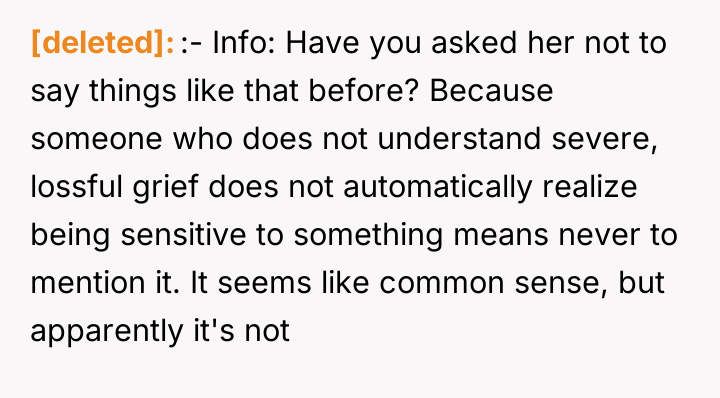
The original poster (OP) is dealing with immense grief due to the loss of their entire extended family over two decades, leading to a deep sensitivity regarding family connections. The central conflict arises because the OP's friend frequently highlights her large, active family, which triggers the OP's pain, culminating in the OP responding to a passive-aggressive comment with a harsh, dark joke about their deceased relatives.
Was the OP's response justified as a defense mechanism against repeated emotional jabs, or did the attempt to regain control cross a line into unacceptable cruelty? The debate centers on whether the friend's insensitive comments negate the OP's responsibility for their own extreme retort.